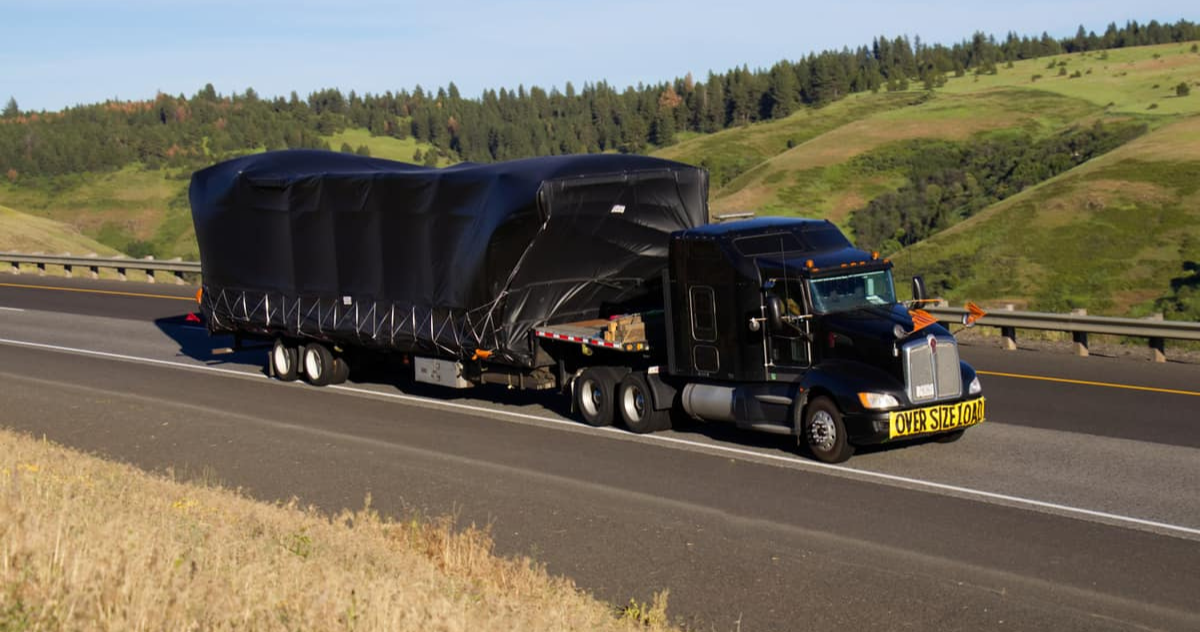New York (Transatlantic Today) – As a responsible driver sharing the road with a variety of vehicles and cargo, you must always be aware of the legal requirements and potential risks associated with your journey. One crucial question that often arises is, “Is it illegal to pass an oversized load?” The answer is not a simple yes or no; it comes with several important considerations. In this article, we’ll delve into the world of oversized loads, exploring what they are, the regulations governing them, and the dangers associated with passing them.
What Constitutes an Oversized Load?
Oversized freight loads, simply put, are shipments that exceed the standard dimensions set by the US Department of Transportation (USDOT). These dimensions typically apply to cargo transported within various trailers, such as tankers, dry vans, boxes, or refrigerated trailers. However, the size limits can be exceeded when it comes to flatbed trailers, like stretch flatbeds. An oversized load is generally defined as any cargo that surpasses the following dimensions:
- Length: More than 48 to 53 feet
- Height: Taller than 8.5 feet
- Weight: Heavier than 46,000 pounds
To transport oversized loads legally, drivers must obtain special permits from the USDOT Federal Highway Administration. These permits are granted with specific conditions, and drivers must pay close attention to the axle weight, load distribution, and any protruding elements of the cargo. It is crucial to emphasize that the rules and laws regarding oversized load transportation apply to all drivers, whether they hold fundamental driver’s licenses or commercial driver’s licenses.
Understanding the Rules for Oversized Load Movement
Passing an oversized load on the road involves adhering to strict guidelines and regulations at the federal level. These rules are designed to ensure the safety of both the oversized load and other road users. Here are some key points to consider:
- Steady Driving: Oversized loads should not behave erratically by crossing centerlines or forcing other drivers off the road. Safe and steady driving is paramount.
- Traffic Laws and Speed Limits: Drivers of oversized loads must obey all traffic laws and adhere to posted speed limits. This is where the role of a pilot escort becomes crucial.
- Pilot Escorts: In the case of oversized freight transported on flatbed trailers, such as extendable flatbeds, a convoy typically includes at least one pilot car. These pilot cars play a pivotal role in ensuring the safe transportation of unusually large cargo. They help maintain a safe distance between the oversized load and other vehicles, provide warnings to the driver, and assist in navigating challenging situations.
For particularly heavy loads, it is essential for the truck to travel at a slower speed to ensure the stability of the vehicle’s axles. This cautious approach helps prevent accidents and ensures the safety of all road users. Therefore, attempting to pass an oversized load that is moving slowly is generally discouraged. The presence of pilot cars in such convoys indicates that caution and adherence to traffic rules are paramount.
Is It Illegal to Pass an Oversized Load?
Now, back to the initial question: Is it illegal to pass an oversized load? The answer is not a straightforward yes or no. It largely depends on the specific situations and the laws in your jurisdiction.
Passing an oversized load on the road is legal as long as you do so safely and within the bounds of traffic laws. However, passing such a load can be risky due to various factors, including:
- Side Winds: Oversized loads are more susceptible to side winds’ effects, making them harder to control.
- Obtrusive Structures: The sheer size of oversized loads can obstruct the driver’s view, making it challenging to anticipate and react to potential hazards.
- Limited Maneuverability: Oversized loads require more space to maneuver, especially when making turns or changing lanes.
- Slower Speeds: As mentioned earlier, oversized loads often travel at reduced speeds to ensure safety. Attempting to pass a slow-moving oversized load can be risky, especially on highways.
Final Words: Is It Illegal to Pass an Oversized Load?
In conclusion, while it is generally legal to pass an oversized load when done safely and in compliance with traffic laws, it is essential to exercise caution. Always consider the potential risks associated with passing such loads, and be aware of the presence of pilot escorts in the convoy. Your safety and the safety of others on the road should always be the top priority when encountering oversized loads during your journey.


























